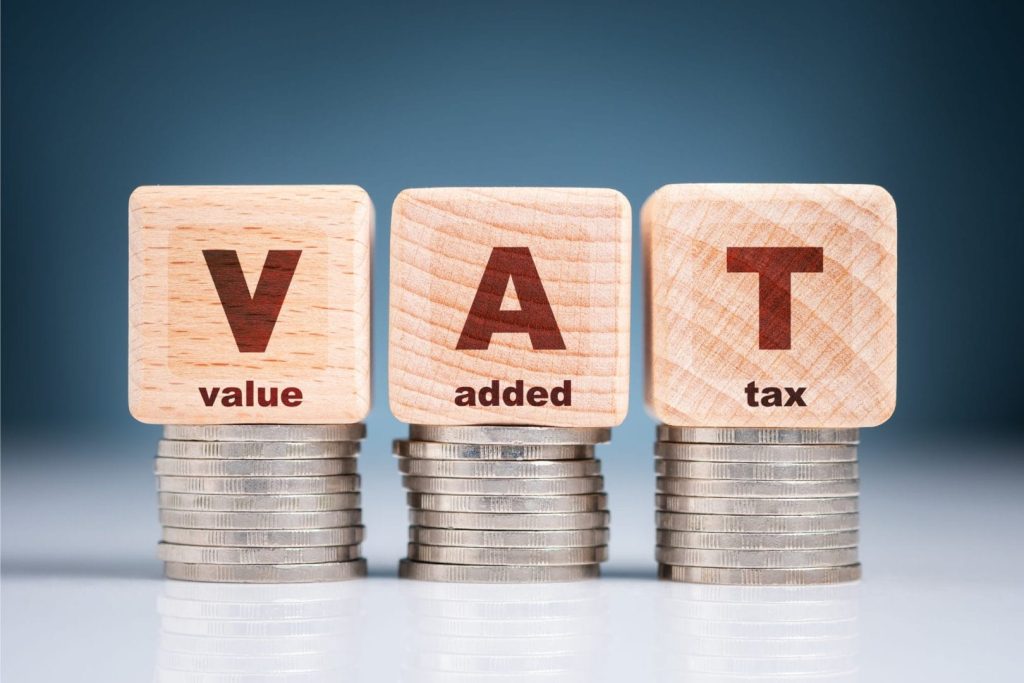Value Added Tax (VAT) is one of the most important indirect taxes in Zambia, playing a major role in government revenue and business compliance. Whether you run a small shop, a medium enterprise, or a large corporation, understanding how VAT works is critical for staying compliant, avoiding penalties, and managing your financial operations effectively.
This comprehensive guide breaks down everything you need to know about VAT in Zambia—from registration requirements, VAT rates, input and output VAT, filing procedures, and penalties, to compliance tips that help your business operate smoothly.
What Is VAT in Zambia?
Value Added Tax (VAT) is a consumption tax applied at every stage of the supply chain where value is added, from production to final sale. In Zambia, VAT is administered by the Zambia Revenue Authority (ZRA) and is charged on:
- Sale of taxable goods
- Provision of taxable services
- Importation of goods
Businesses act as tax collectors on behalf of ZRA by charging VAT on their sales and remitting it to the government.
Who Must Register for VAT in Zambia?
VAT registration is mandatory for businesses that meet specific requirements. Understanding these rules is important to avoid penalties for operating without proper registration.
1. Mandatory VAT Registration
A business must register for VAT if its annual taxable turnover meets or exceeds the VAT threshold set by ZRA. This threshold ensures only businesses of a certain size are required to collect VAT.
2. Voluntary VAT Registration
A business below the threshold may choose to register voluntarily if:
- It regularly deals with registered suppliers
- It wants to claim input VAT
- It aims to appear more credible to clients, tenders, or corporate partners
Voluntary registration is common for businesses that supply other VAT-registered companies, as it reduces operational costs through input VAT recoveries.
Documents Required for VAT Registration
To register for VAT, a business generally needs to provide:
- TPIN certificate
- Certificate of incorporation (for companies)
- NRC for individuals or directors
- Trading licence (if applicable)
- Business premises details
- Bank account information
- Financial statements or projected turnover
- Tax compliance history
Once the application is approved, ZRA issues a VAT registration certificate, and the business is officially required to collect and remit VAT.
Understanding Output VAT and Input VAT
VAT works on a credit-offset system, meaning businesses need to understand both output VAT and input VAT.
Output VAT
This is VAT a business charges on taxable goods or services sold to customers. It must be reported and paid to ZRA.
Input VAT
This is VAT the business pays on purchases or expenses made from other VAT-registered suppliers. Businesses can claim this amount to reduce their VAT liability.
How the Two Work Together
Net VAT Payable = Output VAT – Input VAT
If input VAT is greater than output VAT, the business may carry forward the excess or request a refund depending on the situation.
VAT Rates in Zambia
Zambia’s VAT structure includes:
- Standard Rate: Charged on most goods and services
- Zero-Rated Supplies: Exported goods and certain essential products
- Exempt Supplies: Goods or services not subject to VAT
Understanding which category your business falls under is critical for accurate filing and compliance.
How to File VAT Returns in Zambia
VAT returns are typically filed monthly, although some businesses may qualify for alternative periods depending on their category and activities.
Steps for Filing VAT Returns
- Log into the ZRA online portal
- Capture all sales for the period
- Capture all purchases and claimable input VAT
- Calculate net VAT payable or refundable
- Submit the VAT return before the deadline
- Make payment for any VAT owed
Submitting accurate VAT returns is essential for maintaining tax compliance and avoiding penalties.
VAT Deadlines and Penalties
Timeliness is critical when dealing with VAT in Zambia. Failure to comply may result in:
1. Penalties for Late Filing
ZRA may charge penalties for filing VAT returns after the due date.
2. Penalties for Late VAT Payments
Interest and penalties apply if a business fails to remit VAT on time.
3. Penalties for Operating Without VAT Registration
A business that meets the registration threshold but fails to register may face:
- Fines
- Tax assessments
- Compliance audits
- Possible suspension of operations
4. False Claims or Fraudulent Returns
Submitting incorrect information or fraudulent refund claims may attract:
- Heavy penalties
- Interest charges
- Audits
- Legal action
Businesses must therefore ensure that their VAT submissions are accurate and supported by proper documentation.
Benefits of VAT Compliance in Zambia
Staying VAT compliant is not just a legal requirement—it’s also a smart business practice. Some key benefits include:
1. Improved Business Credibility
Tenders and corporate clients often require VAT compliance as part of due diligence.
2. Eligibility for Government and Corporate Contracts
Most public procurement processes require:
- VAT registration
- VAT returns
- Valid Tax Clearance Certificates
3. Ability to Claim Input VAT
A registered business reduces operational costs by claiming input VAT on expenses.
4. Reduced Risk of Audits and Penalties
Compliance keeps your business safe from penalties and ensures smoother operations.
Common VAT Compliance Mistakes in Zambia
Many businesses struggle with VAT due to avoidable errors, such as:
- Not issuing proper VAT invoices
- Claiming VAT on invalid expenses
- Mixing personal and business purchases
- Under-declaring sales
- Failing to keep proper accounting records
- Late filing of returns
- Ignoring VAT obligations on imported goods
Understanding these common mistakes helps you stay compliant and avoid financial losses.
Practical Tips for Businesses to Stay VAT Compliant
Here are simple steps to ensure smooth VAT operations:
1. Keep Detailed Records
Proper documentation of sales and purchases is essential.
2. Use Accounting Software
Digital systems reduce errors and make VAT calculations easier.
3. Reconcile Monthly
Regular reconciliation ensures accurate VAT filings.
4. Train Your Staff
Anyone handling sales or accounts must understand VAT rules.
5. Monitor Your Threshold
Growing businesses should track their turnover to avoid late registration.
6. Seek Professional Guidance
Consulting tax professionals ensures accuracy and reduces the risk of penalties.
Conclusion
Understanding VAT in Zambia is essential for every business, whether big or small. From knowing when to register, how to file VAT returns, how to calculate input and output VAT, and how to avoid penalties, VAT compliance forms a major part of running a legally sound and financially healthy business.
When handled correctly, VAT becomes a smooth process that enhances your business credibility, reduces risk, and positions your company for growth in Zambia’s competitive market.







